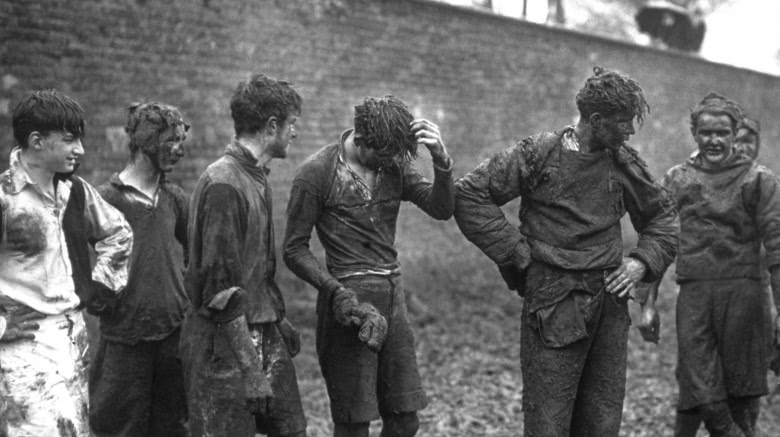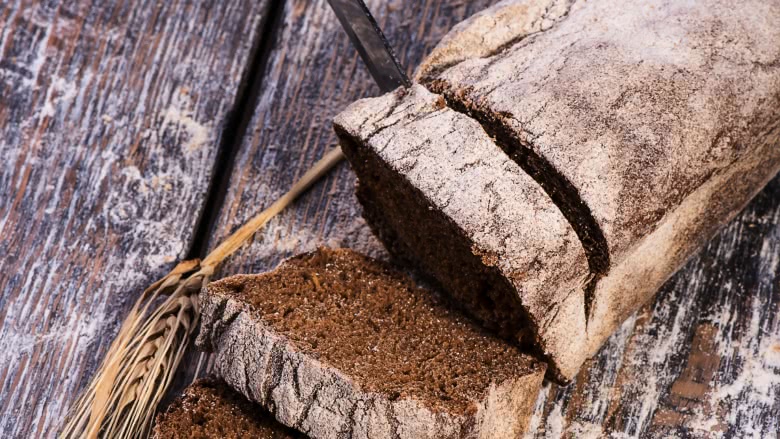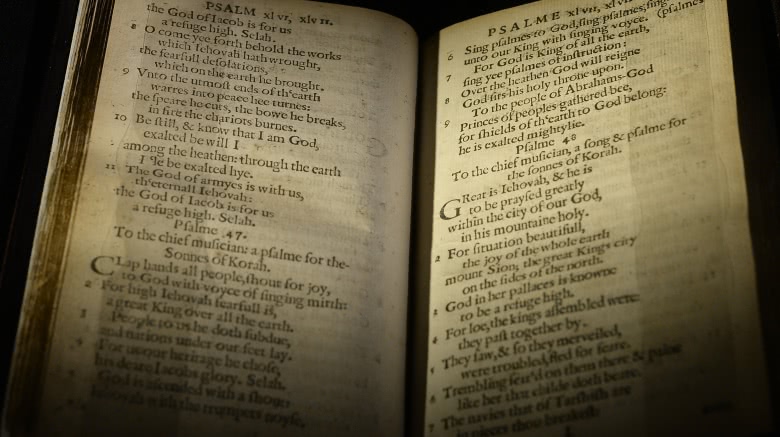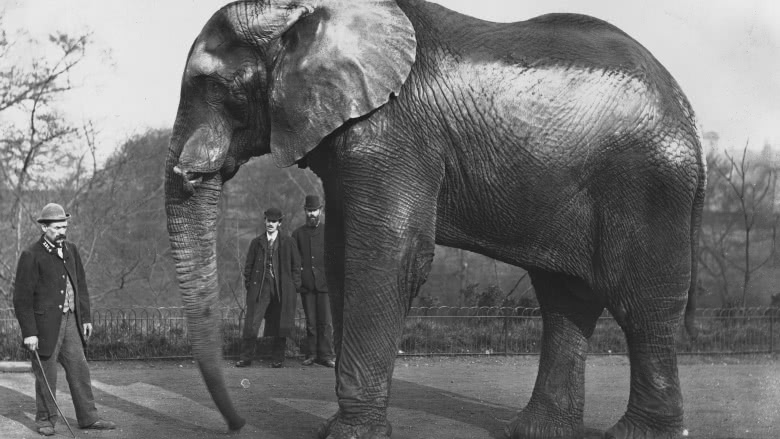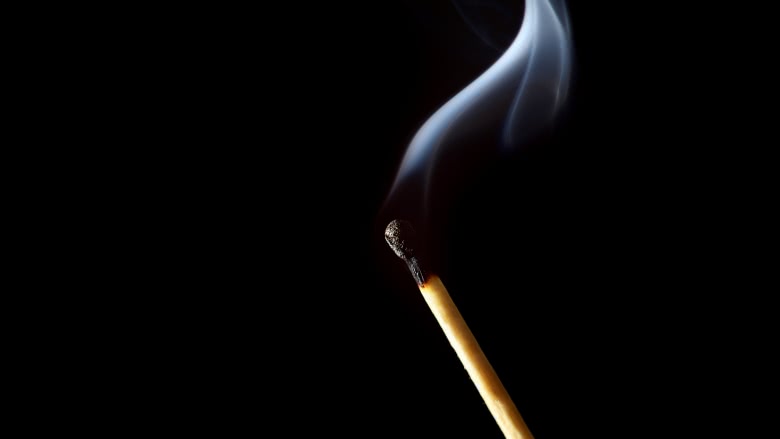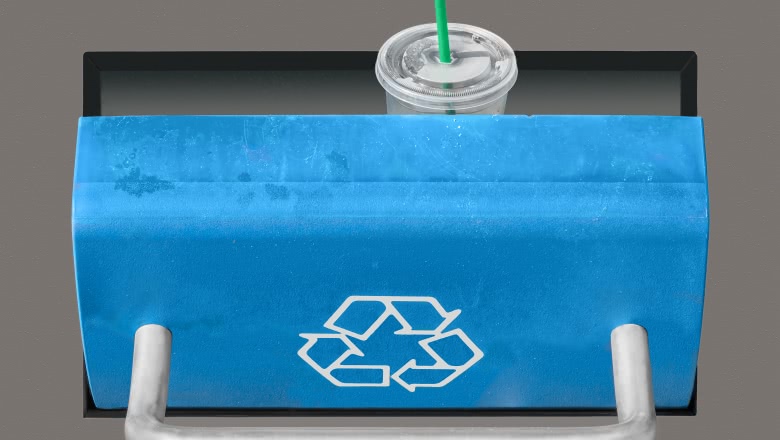Words That Used To Mean Something Completely Different
Words change over time. Like how I love you can change from a sweet endearment to a hollow and raspy call you say trying to desperately convince yourself there's still life in this marriage. In the same way, words can start out as something bright and shiny and turn super Sauron-y rather quickly. Words are ... the Gollums of the English language.
So we're here to document this weird and strange transition and let you know that all the words you're using have dark and ancient backstories. Or gross one. You'd be surprised how many just have super nasty archaic definitions.
Fascism
Fascism makes you think of jackboots and people ovens. It makes you think of totalitarian dictators taking over the world. It reminds you of dark despair, but guess what though? None of that's how fascism started out.
Yep, much like dictators who started out as meager art students before threatening the world, fascism had a rather prosaic definition at first. Originally, fascism meant bundle. As in a bundle of things. Which we guess it still sort of means nowadays, but instead of a bundle of things, it means a bundle of really awful people out to ruin the world. The original definition grew to mean a political group and then, specifically, the type that really likes black shirts and killing people. So remember, next time you think of fascism, think of a bundle of sticks—and remember, sticks can burn.
Fag
Fag is one of those words that you're better off not ever uttering. It's a slur, given to gay—or, occasionally, just effeminate—boys (or people who look like boys). It's harmful and hurtful, and it started out slightly different.
Now, we're not giving you permission to say this word all over town or anything, but fag didn't start out meaning what you think it means now. Of course, there's a chance that some of you might know this already, because in the UK fag still carries its archaic meaning. That's bundle of sticks or cigarette, right? Wrong!
Fag meant "student." Yeah. In the 1700s, it meant "junior student who does certain duties for a senior." (Heh heh, "certain duties.") "Faggery" was "fatiguing labor," which we guess still applies because being gay in this society is pretty exhausting. It wasn't until the mid-1920s that the word took on its now common meaning.
Awful
Awful describes everything we don't like. McDonald's is awful. The (political party you don't like) is awful. The Transformers films are awful. But awful didn't used to mean bad. It meant reverently profound. It meant "awe-ful," as in something that filled you full of awe. Think less "bad Chinese food" and more "beholding the face of God." And just like the face of God, or bad Chinese food, awful was applied to things so huge and holy that they commanded respect and fear.
So, yeah, sure the Transformers movies might be awful, but that doesn't mean they're bad. It means they're so gloriously huge and unfolding in such majesty that the human mind can't but stand back and watch in respect, dread, and reverence as Optimus Prime punches the heck out of Megatron. That's awful.
Dunce
You're such a dunce! your teacher might've yelled after you got the equation wrong for the 30th time. You might've even been forced to wear a dunce cap and sit in a corner (although this isn't likely unless you literally lived in a cartoon). But little do all those people who call you "dunce" know, they're complimenting you.
Dunce wasn't a word. It was a name. Which we guess also makes it a word, but you know what we mean.
There was a man named John Duns Scotus—no relation to the Supreme Court—who was a) Scottish and b) a philosopher. He rebelled against the typical medieval view of the world at the time, and, well, that made everyone laugh at him. People who followed him were called Dunces (sort of the 1200s version of Beliebers) but since those dunces were viewed so negatively, the word took on the meaning it has today. But remember, it just means you're a rebel. Now go sit in the corner.
Punk
Aw, yeah, who doesn't like punk music? It's the best, right? Dead Kennedys, Against Me!, The Clash—great bands. Plus, the punk style is pretty cool, right? Being punk means rebelling and rocking out, but it didn't always mean that exactly. Originally, punk was a word synonymous with prostitute.
Back in the 1500s, if your dad called you a punk, it wasn't a small jab, it was a flat-out insult, like calling you a whore. After a while, the word grew to mean "a worthless person" because society is just super awesome to women and always has been. But then, it was reclaimed as a word that meant being just so freaking awesome, which is fair since it had been applied to awesome people forever. So yeah. Dead Kennedys rock, and be nice to sex workers.
Pumpernickel
This is perhaps the only word whose original meaning also seems to accurately describe our feelings about its newer meaning.
Pumpernickel is a dark rye bread that, depending on who you are, either you like, or you're someone who has correct opinions about food. Regardless, we can all admit it is a food. But that's not how pumpernickel started out.
Those German scholars out there might already know this, but pumpernickel means "the devil's fart." Yeah, that's what pumpernickel is, and you know what? We can kind of see how that applies to pumpernickel as it is, because it is also odious and perhaps sent by the devil to destroy our wellbeing and happiness. Before pumpernickel was called "devil fart," its name was "krankbrot," which meant "sick-bread," making you wonder why people kept baking it if everyone seemed to hate it as much as we do.
Nimrod
You're such an ignoramus, you're such a dunce, such a nimrod. "Well, hold up one second," you say to this imaginary bully who is just hurling insults at you. "Nimrod was a great king," you might say, before getting pelted over and over with dodgeballs. But you're right, you little dork.
Nimrod meant "great hunter." He was a king from the Old Testament. And it wasn't like the Bible was mean to him or anything. He was pretty awesome there. So what happened?
No one quite knows how it started to become an insult, although we do know it happened in the 1980s. Some people think it's because of Bugs Bunny using it in a cartoon, which just goes to show that no matter what you do, nothing will be as influential as silly cartoons you watch once when you're a kid. Not even the Bible.
Avocado
Avocado is the main ingredient in guacamole and all of white people's sense of empathy. It's a green fruit with a huge pit, and it's pretty fashionable, especially in more hipster areas, like, for example, all of California. Now, while guacamole's taste is good or bad, depending on your preference, the name for it means ... testicles. Yep, that's right, those [description redacted] that hang [redacted] and look [redacted] [redacted].
If it helps at all, the word also shares roots with a word that means "lawyer," so now you know that guacamole and lawyers are not just things only rich white people can enjoy, but they're also etymologically related to the word for [redacted] [redacted] balls.
Jumbo
If you're a fan of seafood, then you know what jumbo means—it's your favorite type of shrimp! Jumbo means big, huge, large. The size of every single soda in America. But the way we use "jumbo" now isn't connected to the original meaning, but to an elephant named Jumbo.
See, "jumbo" originally meant "clumsy," which is why it was the perfect name for a circus elephant. PT Barnum (the famous one who went around the world screaming stuff until people believed him) told tales of how Jumbo the Elephant was so large and massive that even other elephants looked like mere fleas in comparison. So a word that started as describing you when you're drunk became a word that describes you after Thanksgiving dinner.
Fizzle
"Fizzle" makes you think of something building up and then ending without any type of big spectacular boom, right? Like a firework that ends without a splash. But think of fizzy water. Or something that's fizzling. Doesn't it look like air escaping? And what is air escaping called when it happens with humans?
Yep, the original meaning of fizzle was "fart." Specifically, it meant breaking wind without making a sound. So "silent but deadly" is just a longer way to say you did a "fizzle." Think of that the next time you're drinking fizzy water: It's just a big ole bottle of water farting down your throat. Yum.
Reduce
Reduce, reuse, recycle is a pretty common refrain about how we can cut down on our wasteful use and keep the Earth safe and clean. That's what reduce means, after all. Reduce our amount of garbage by recycling. Reduce our wasteful spending by saving. Reduce a town by conquering it with a mass of soldiers and fear. Wait, what was that last one?
Yeah, one of the original meanings of reduce was to conquer a town, like something Napoleon would've done. Of course it's not the original meaning. Reduce has been around for almost a thousand years, and it's gone through a lot of different incarnations. In one version, it meant "bring back." Then it was rebooted as "bringing back" but in a bad way—diminishing (so, you know, like a reboot). It kept going, meaning to make someone lower in rank and then to conquering a town, and finally to our current version of the word. In the 2100s, it'll probably mean to build a city.
Cheat
Cheat is one of those multi-purpose words that means "you unfairly betrayed another person with whom you had an agreed upon set of rules." It's most commonly used when you're discussing infidelities or someone breaking the rules at video games. Originally, it meant the legal "revision of property to the state when the owner dies without heirs."
This one makes a whole lot of sense. Can't you see how the term for "cheat" evolved from the government seemingly stealing land from your family to becoming the term it is today? Just shows that even since olden times, humanity has always hated the government. Bunch of cheats then, bunch of cheats now—at least one thing hasn't changed.


